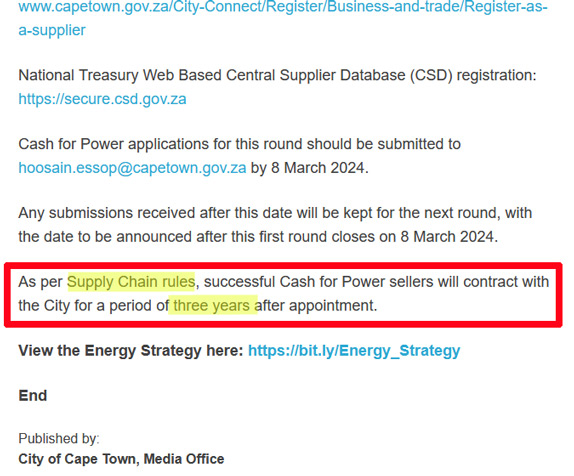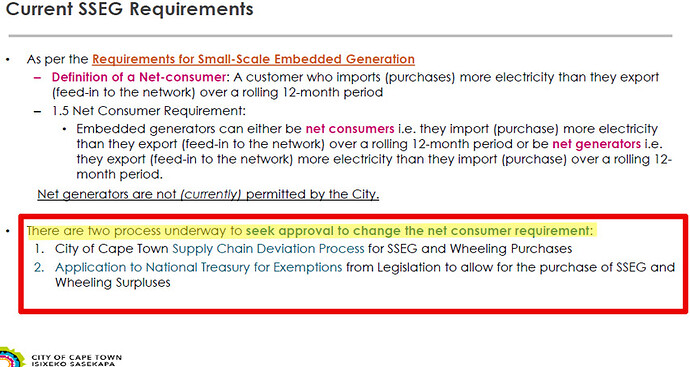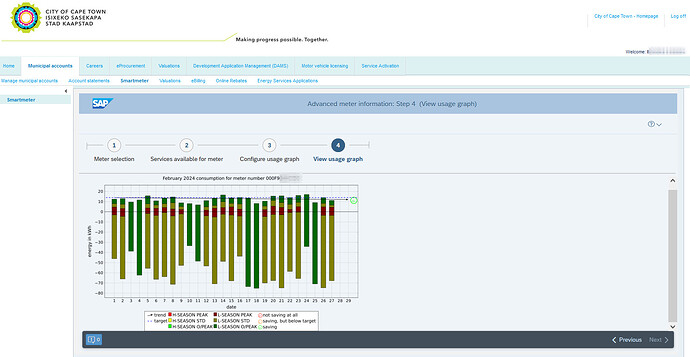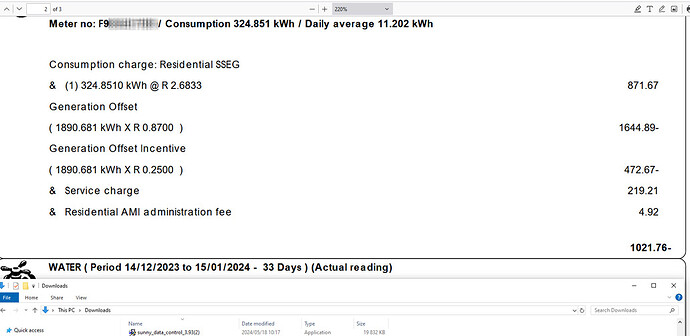Regarding CoCT net consumer requirement, only 3 year “cash for power” contract , NERSA/IPP and everyone playing 3D chess etc.
tldr → CoCT could drop the net consumer requirement after changing their own procurement processes with permission from National Treasury. 3 year contract limit is a procurement/supply chain rule requirement - otherwise it will be a much longer convoluted process allowing for public comment etc. for every application.
/wall of text/graphic/monsters be beyond here
History:
2022
National Treasury granted the Cape Town an exemption from competitive bidding / tendering processes that may otherwise apply to this process using section 3 of the Preferential Public Procurement Framework Act
The exemption is necessary because South Africa’s Public finance legislation did not foresee energy procurement from independent power producers, only from ESKOM.
*emphasis my own
or in other words:
this point meant facing “administrative, legal and bureacractic hurdles” from national regulation - in particular, procurement processes. He explained that in order to spend public money to buy power from its customers, the City would be required to launch a tender process, which is impractical and doesn’t make sense for what it wants to achieve.
“The way the tender laws were written, before we had a competitive energy grid and the possibility of SSEG (small-scale embedded generation),” said Hill-Lewis. The customers are not competing on the product offered - which is energy - nor on the price, because the municipality sets the tariff.
*emphasis my own
CoCT Cash for Power application info February 2024

CoCT Supply Chain rule

If wanting a contract for longer than 3 years with the municipality the following would apply:
- (1) A municipality may enter into a contract which will impose financial
obligations on the municipality beyond a financial year, but if the contract will impose
financial obligations on the municipality beyond the three years covered in the annual
budget for that financial year, it may do so only if—
*(a) the municipal manager, at least 60 days before the meeting of the municipal
council at which the contract is to be approved—
(i) has, in accordance with section 21A of the Municipal Systems Act—
(aa) made public the draft contract and an information statement
summarising the municipality’s obligations in terms of the proposed
contract; and
(bb) invited the local community and other interested persons to submit
to the municipality comments or representations in respect of the
proposed contract; and
(ii) has solicited the views and recommendations of—
(aa) the National Treasury and the relevant provincial treasury;
(bb) the national department responsible for local government; and
(cc) if the contract involves the provision of water, sanitation, electricity,
or any other service as may be prescribed, the responsible national
department;
*(b) the municipal council has taken into account—
(i) the municipality’s projected financial obligations in terms of the
proposed contract for each financial year covered by the contract;
(ii) the impact of those financial obligations on the municipality’s future
municipal tariffs and revenue;
(iii) any comments or representations on the proposed contract received from
the local community and other interested persons; and
(iv) any written views and recommendations on the proposed contract by the
National Treasury, the relevant provincial treasury, the national department
responsible for local government and any national department
referred to in paragraph (a)(ii)(cc); and
*(c) the municipal council has adopted a resolution in which—
(i) it determines that the municipality will secure a significant capital
investment or will derive a significant financial economic or financial
benefit from the contract;
(ii) it approves the entire contract exactly as it is to be executed; and
(iii) it authorises the municipal manager to sign the contract on behalf of the
municipality.
Nice thorough overview of the legal side of the procurement legislation relevant here.


